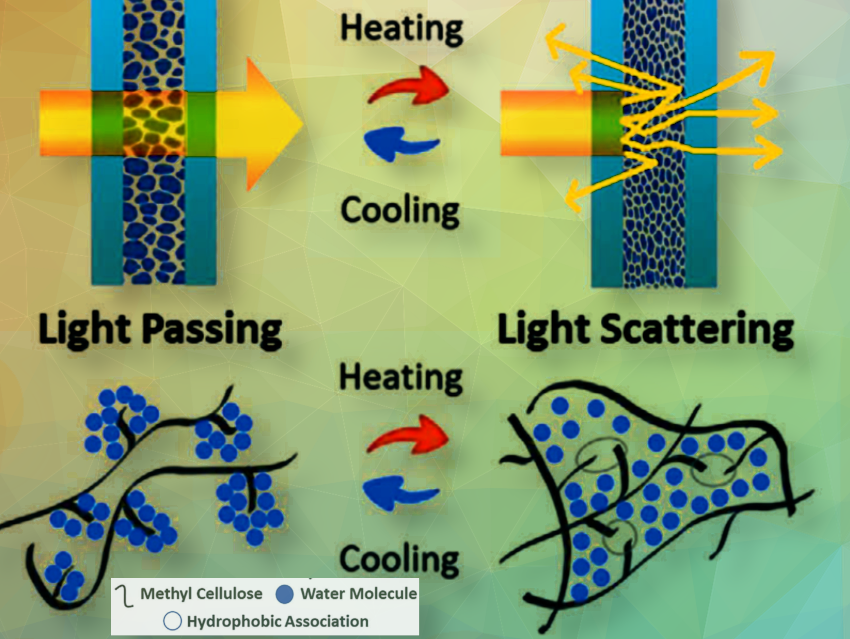Smart windows, which can automatically adjust optical transmittance to regulate incoming solar radiation, are gaining scientific attention for their potential economic and environmental benefits. However, global adoption faces challenges due to different climatic and economic conditions in different geographical regions.
Tian Li and colleagues, Purdue University, West Lafayette, IN, USA, have synthesized a methylcellulose (MC) salt system that can be used for energy-efficient windows and light management systems. The salts used in this study included NaCl, Na3PO4, Na2SO4, NaF, NaBr, NaNO3, and Na2S2O3.
The team used the material for TR (Thermos Responsive) windows, which undergo an optical switch through a temperature-induced transition from solution to gel state (pictured). Below the transition temperature, the material shows hydrophilic behavior, with high transparency in the visible range due to the formation of O─H bonds with water molecules. At temperatures above the lower critical solution temperature (LCST), hydrophobic interactions between the MC and water molecules (sol-gel transition) cause a phase change from coil to globule, forming colloidal aggregates that change the refractive index and scatter solar radiation, resulting in effective sunlight blocking and reducing solar heat gain by 55%. The dynamic optical performance can be effectively tuned from 34°C to 72°C by optimizing the MC and salt concentrations. The team found that an MC solution (25 g L-1) with 0.5 m NaCl and 0.025 m Na2PO4 is the optimal combination for their intended application. This particular combination had a LCST of approximately 38 °C, indicating the temperature at which the solution undergoes a phase transition from a homogeneous solution to a gel-like state.
The team built a 20 cm × 20 cm smart window to demonstrate its potential for reliable, large-scale, high-performance building applications and lighting management devices. With high stability, easy scalability, and potential retrofits to current systems, the researchers believe their solution is a practical and promising advancement for energy-efficient systems.
- Highly Tunable Cellulosic Hydrogels with Dynamic Solar Modulation for Energy-Efficient Windows,
Noor Mohammad Mohammad, Yun Zhang, Wenhui Xu, Sai Swapneel Aranke, Daniel Carne, Pengfei Deng, Fengyin Du, Xiulin Ruan, Tian Li,
Small 2024.
https://doi.org/10.1002/smll.202303706




